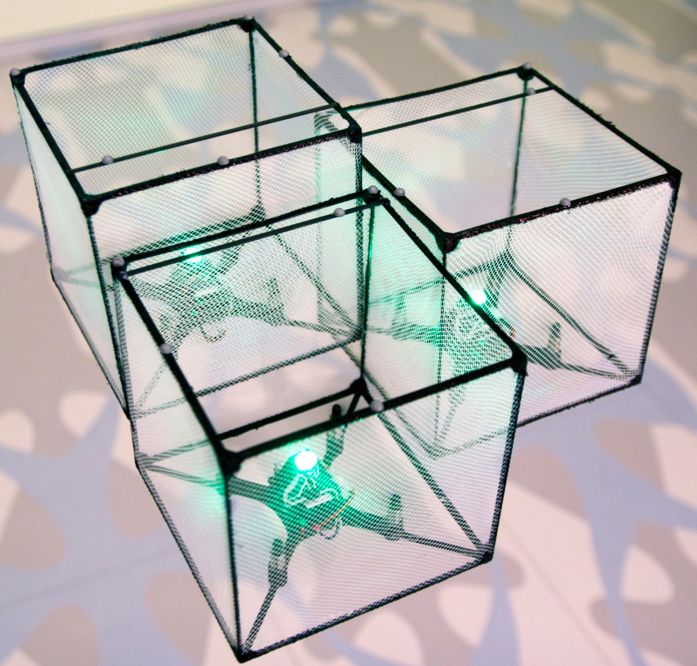Could an interactive swarm of flying “3D pixels” (voxels) allow users to explore virtual 3D information by interacting with physical self-levitating building blocks? (credit: Roel Vertegaal)
We’ll find out Monday, Nov. 9, when Canadian Queen’s University’s Human Media Lab professor Roel Vertegaal and his students will unleash their “BitDrones” at the ACM Symposium on User Interface Software and Technology in Charlotte, North Carolina.
Programmable matter
Vertegaal believes his BitDrones invention is the first step towards creating interactive self-levitating programmable matter — materials capable of changing their 3D shape in a programmable fashion, using swarms of tiny quadcopters. Possible applications: real-reality 3D modeling, gaming, molecular modeling, medical imaging, robotics, and online information visualization.
